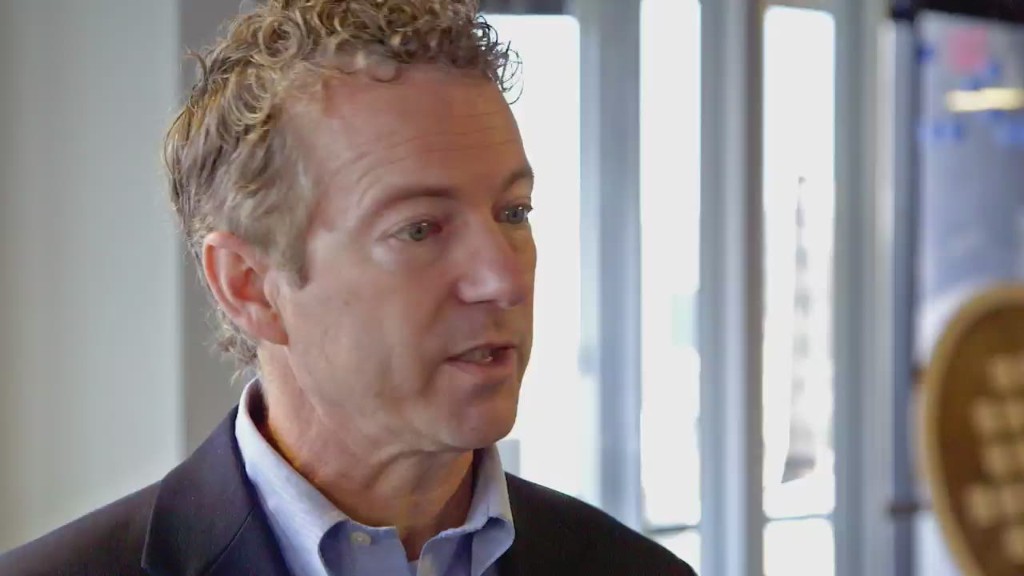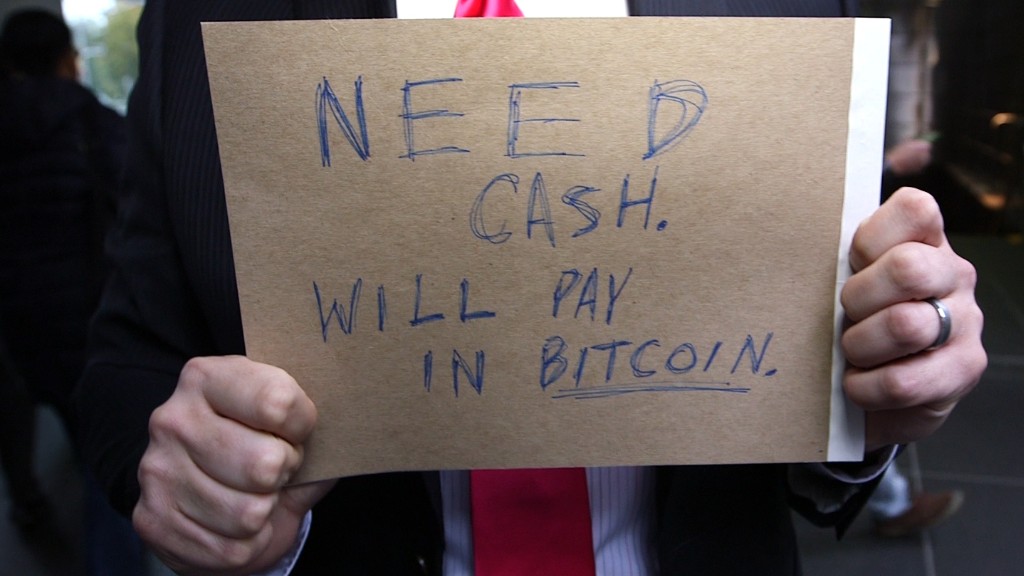
Rand Paul is accepting donations to his 2016 presidential bid in Bitcoin.
It marks the first time that a candidate for president has accepted purely digital campaign funds.
The Libertarian Republican is an obvious choice to test the waters. Bitcoins are an independent currency that's totally outside the realm of U.S. dollars. It's like Euros or Yen -- except bitcoins are created and distributed privately by a community of tech enthusiasts.
Bitcoin fits in with Paul's views that government should take a more "hands off" approach to controlling the nation's money supply, which drives up inflation and devalues the currency. He's also likely trying to draw the attention of young, tech-savvy voters.
Paul, a U.S. senator from Kentucky, announced his bid on Tuesday. His website shows he's also accepting donations in credit cards and from PayPal.
Bitcoin is frequently associated with tech geeks and crime. That's because it's a highly complex system that has famously been used on black markets online.
However, it's much more than that. It's a creative new system of money that allows for immediate, secure transactions with very low fees.
Startups are trying to build networks so that people in rich countries can more easily send money to family members in poor countries. Major banks are experimenting with ways to make faster and more convenient person-to-person payments.
There's also a concern that -- because bitcoins function outside the banking system -- they're harder to trace. That's a dangerous implication for mysterious, untraceable donations.
But that's largely unfounded. Contrary to popular belief, bitcoins are perfectly traceable (like email). And new rules from the Federal Election Commission say that politicians have to register new donors just like they do with regular U.S. dollars anyway.
To follow the rules, Paul's campaign will have to convert any bitcoins back to dollars before they use them. But they'd do that anyway. The Bitcoin-to-dollar value fluctuates a lot.
Jose Pagliery is the author of Bitcoin - And the Future of Money (Triumph Books, Chicago).


